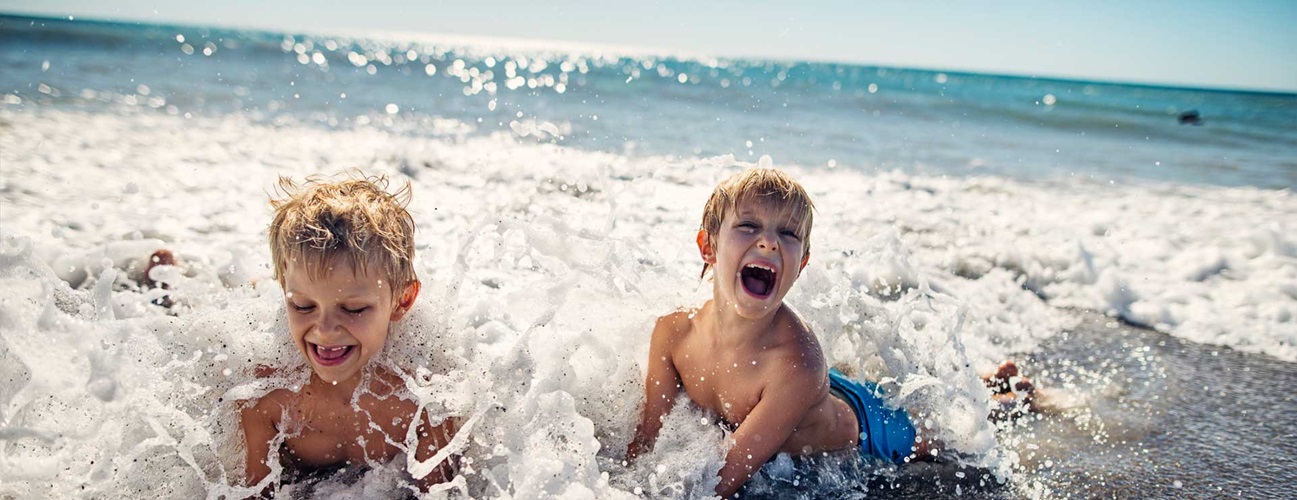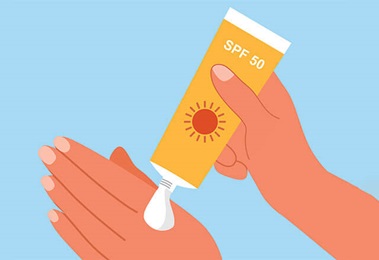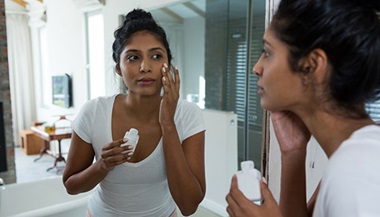Summer Safety
Warm weather and long days are perfect for outdoor sports and activities, exploring nature, swimming, traveling with family and friends and making happy memories. Here are some safety tips to help you and those you love stay safer and healthier all summer long.
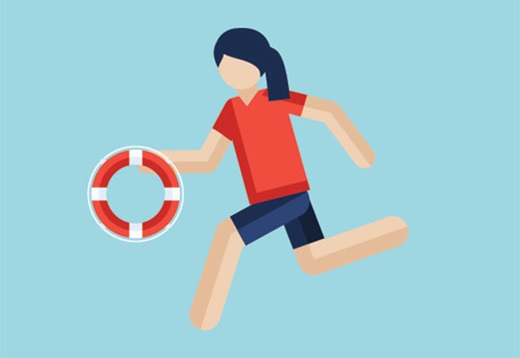
Water Safety
Whether your family is spending time in the pool, at the beach or on a boat this summer, you should be aware of the proper safety precautions to follow. Parents of young children should:
- Never leave your child unsupervised near water at or in the home, or around any body of water, including a swimming pool.
- Remember that very young children can tumble headfirst into buckets, ice chests, tubs, outdoor water features, toilets and other containers of water.
- Make sure any boating activities include proper flotation devices, like U.S. Coast Guard-approved life jackets, in case of an emergency.
- Consider learning CPR, especially if your child regularly participates in water activities.
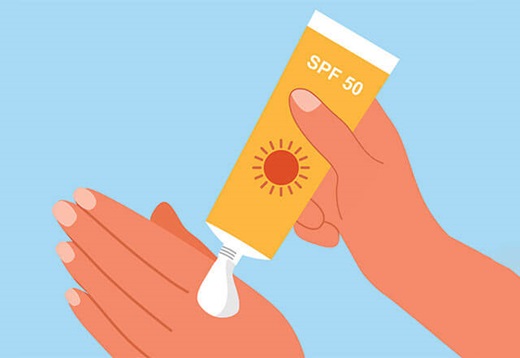
Summer Skin Safety
One of the last things you’re thinking about when you’re relaxing on the beach is the possibility of developing skin cancer later in life. But how you care for your skin now — and your children’s — may make a big difference down the road. Skin cancer is the most common type of cancer in the world, accounting for almost half of cancer cases.
According to the American Cancer Society, about 3.5 million cases of skin cancer are diagnosed in the United States each year. Wearing sunscreen properly and consistently ― applying broad-spectrum, water-resistant sunscreen with a sun protection factor (SPF) of 30 or more ― can lower your risk.
Other good ways to protect your skin during the summer include:
- Staying out of the sun during the peak hours of 10 a.m. to 2 p.m.
- Avoiding tanning beds.
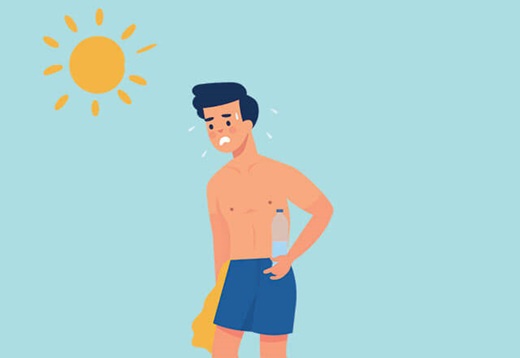
Heat Stroke, Heat Exhaustion and Other Heat-Related Illness
Heat-related illness are real risks in the summer months, especially when you are working or exercising. Learn the symptoms of heat cramps, heat exhaustion and heat stroke, and be sure to stay hydrated with plenty of water when you are enjoying the outdoors on a hot day.
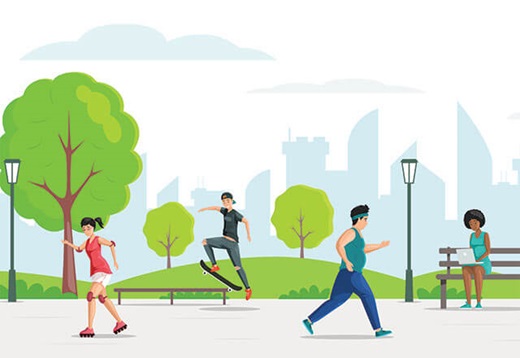
Summertime Sports Injuries
If your bike, running shoes, skateboard, basketball, tennis racket or other sports equipment have been gathering dust all winter and you are ready to get moving again, remember to go slow at first and take other precautions to prevent sports injuries.
For instance, overuse injuries commonly affect both professional and amateur athletes, and may be prevented by warming up before exercise, using proper technique and avoiding overexertion.

Sun Damage to Eyes
Wearing UV protection sunglasses can help shield your eyes from overexposure to ultraviolet light, which is associated with development of cataracts, macular degeneration, pterygium (or surfer’s eye, an abnormal growth on the white of the eye) and photokeratitis (sunburned eyes). Effective “shades” don’t have to be expensive: Any sunglasses that provide 95% to 100% UV protection offer protection.
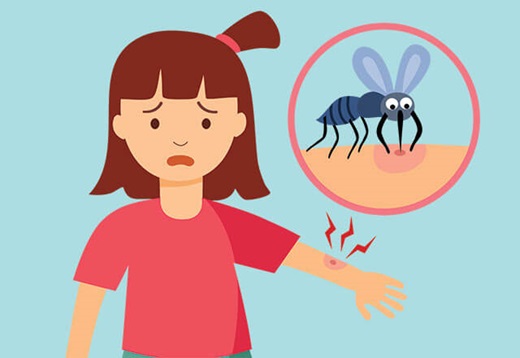
Insect Stings, Ticks and Lyme Disease Prevention
Take care to protect yourself and your family from insect bites and stings and from ticks, which can spread Lyme disease. If you spend time outdoors, check yourself frequently for ticks, particularly your underarms, navel, behind your knees, and anywhere clothing presses on the skin.
If any of your loved ones are allergic to stings from bees or other insects, make sure you have emergency treatment with you before you leave the house and set out into the great outdoors.
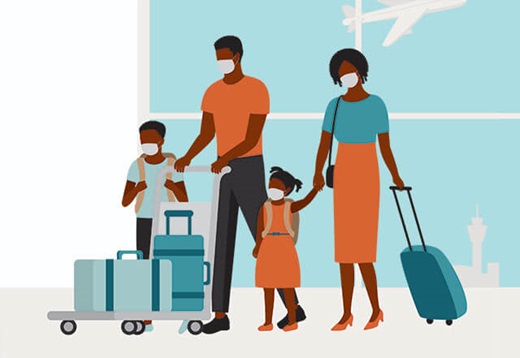
Traveling to Other Countries
According to the CDC, injuries from motor vehicle crashes pose the greatest risk of injury to international travelers. For more information, visit the Safety While Traveling Abroad page for tips on motor vehicle safety and how to avoid hazards associated with swimming, violence and animals.

